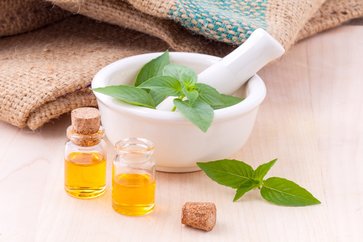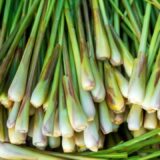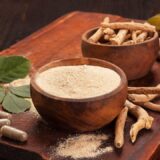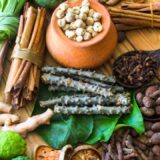Ayurvedic Treatment for Dengue Fever: These 5 Herbs Are The Best
Dengue fever is a viral illness transmitted primarily by the Aedes mosquitoes, particularly Aedes aegypti, and to a lesser extent Aedes albopictus. These mosquitoes are most active during early morning and late afternoon, often thriving in urban environments. 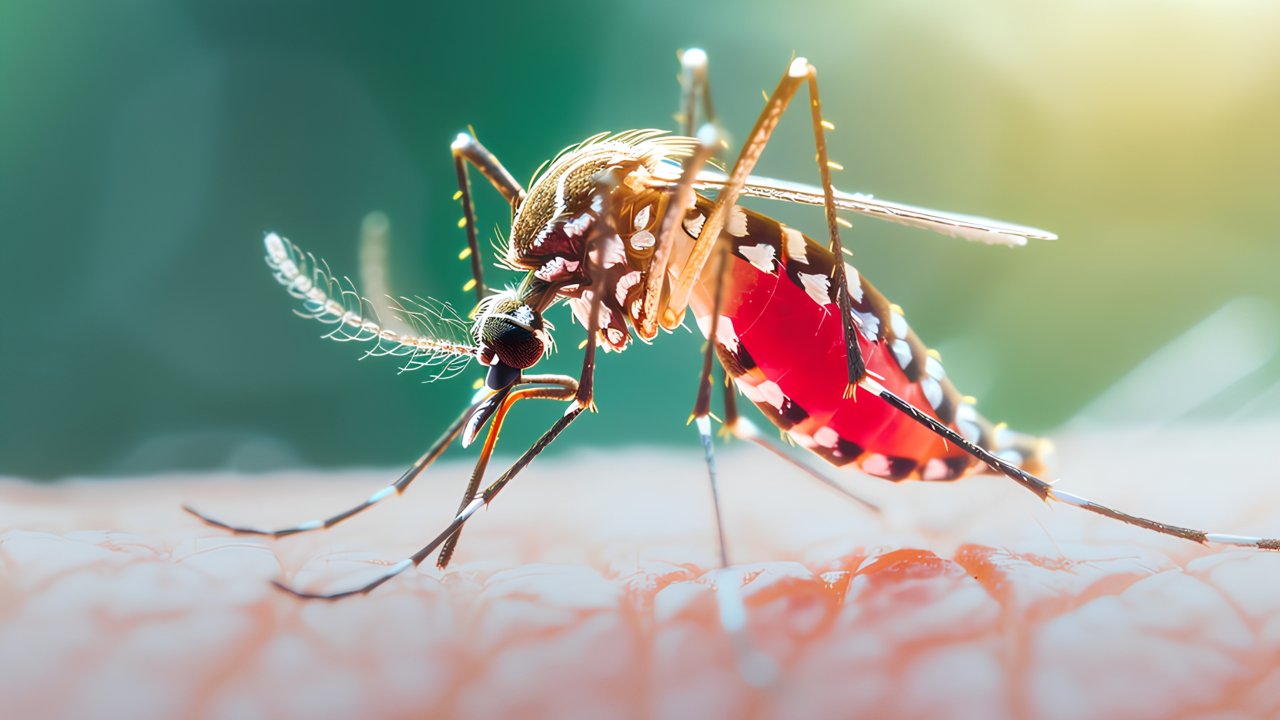
The virus is common in tropical and subtropical regions of the world, including Southeast Asia, the Caribbean, Latin America, and parts of Africa. However, outbreaks have been reported in regions outside these areas, indicating the spread of the virus due to global travel and climate change.
When a mosquito infected with the dengue virus bites a person, it transmits the virus into the bloodstream. The initial symptoms of dengue fever typically appear 4-10 days after the bite and can include high fever, severe headache, pain behind the eyes, joint and muscle pain, rash, and nausea. The illness can range from mild to severe, with some individuals experiencing only mild flu-like symptoms.
Causes of Dengue Fever
Dengue fever is caused by the dengue virus, which exists in four different serotypes (DENV-1, DENV-2, DENV-3, and DENV-4). When a mosquito bites an infected person, the mosquito becomes a carrier of the virus. The virus is then transmitted to humans when the mosquito bites them, injecting the virus into the bloodstream.
The Aedes mosquito typically breeds in stagnant water sources such as containers, tires, and gutters, which provide ideal conditions for the larvae to develop. People living in areas with poor sanitation or water management are at higher risk of dengue transmission.
Symptoms of Dengue Fever
The symptoms of dengue fever typically appear 4-10 days after being bitten by an infected mosquito and can include:
- High fever (often up to 104°F or 40°C)
- Severe headache, especially in the forehead area
- Pain behind the eyes
- Joint and muscle pain
- Fatigue and weakness
- Nausea and vomiting
- Skin rash (which may appear a few days after the fever starts)
- Mild bleeding, such as nosebleeds or gum bleeding
In severe cases, the fever and other symptoms can progress to more dangerous forms of the illness, such as dengue hemorrhagic fever or dengue shock syndrome. These conditions require urgent medical attention.
Ayurveda’s Perspective on Dengue Fever
In Ayurveda, health is seen as a balance between the body’s three primary energies or doshas: Vata, Pitta, and Kapha. When these doshas are in harmony, a person is considered healthy. However, when the doshas are out of balance, it can lead to illness. Dengue fever, from an Ayurvedic perspective, is seen as an imbalance caused by external factors such as viral infections, which disrupt the natural equilibrium of the body.
Ayurveda also views the onset of illness as a result of the accumulation of ama (toxins) in the body, which is often due to weak digestion or improper lifestyle. In the case of dengue fever, the Pitta dosha, which governs the body’s heat and metabolism, may become aggravated due to the fever, causing a rise in the internal temperature and leading to symptoms like extreme thirst, inflammation, and weakness.
Ayurvedic Treatment for Dengue Fever
In Ayurveda, strengthening the body’s immune system is essential for both preventing and managing diseases like dengue fever. A robust immune system, known as Ojas, is key to resisting infections and maintaining overall health. Ayurvedic treatments for dengue fever focus on balancing the doshas, cleansing the body of toxins (ama), and enhancing immunity through natural remedies and lifestyle practices.
The primary goal of Ayurvedic treatment for dengue is to reduce the fever, control inflammation, and help the body recover by re-establishing the balance between the doshas, especially Pitta (heat) and Vata (circulation and movement). In addition to herbal remedies, Ayurveda recommends certain lifestyle changes, breathing exercises (Pranayama), and meditation to support healing and improve overall vitality.
Herbs for Dengue Management
Ayurveda offers a variety of herbs known for their medicinal properties, which can help manage and support recovery from dengue fever. These herbs are used for their ability to boost immunity, reduce inflammation, and aid detoxification. Below are some of the most commonly recommended herbs for dengue management:
Dengue fever is a viral illness transmitted by mosquitoes, and its symptoms can range from mild to severe, sometimes leading to complications such as dengue hemorrhagic fever or dengue shock syndrome. While there is no specific antiviral treatment for dengue, certain herbs have been traditionally used to help alleviate symptoms and support recovery. However, it’s important to consult with a healthcare professional for proper diagnosis and treatment. Here are five herbs that may aid in managing dengue symptoms:
1. Papaya Leaf (Carica papaya)
- How it helps: Papaya leaf is often used in traditional medicine for its potential to increase platelet counts, which can drop in severe dengue. Studies suggest that papaya leaf extract may help improve platelet production and help manage the associated risk of bleeding.
- How to use: Papaya leaf juice or tea is commonly consumed to help increase platelet counts during dengue fever.
2. Giloy (Tinospora cordifolia)
- How it helps: Giloy, also known as Guduchi, is an adaptogenic herb that helps boost immunity and reduce fever. It has anti-inflammatory and antioxidant properties that may aid in reducing symptoms associated with dengue.
- How to use: Giloy can be taken in powder or juice form. It is commonly mixed with water or other herbal concoctions to support immune function.
3. Tulsi (Ocimum sanctum)
- How it helps: Tulsi, or holy basil, has antiviral, anti-inflammatory, and immune-boosting properties. It is often used in Ayurvedic medicine to treat various fevers, including dengue, due to its ability to regulate body temperature and support immune response.
- How to use: Fresh tulsi leaves can be chewed or brewed into a tea. It can also be consumed with honey for better effects.
4. Cinnamon (Cinnamomum verum)
- How it helps: Cinnamon has antimicrobial and anti-inflammatory properties, and it is often used in traditional remedies to help lower fever and ease symptoms like body aches. Its antioxidants may also help strengthen the body’s immune response during dengue fever.
- How to use: Cinnamon can be added to tea or consumed with honey for its healing properties.
5. Lemon Balm (Melissa officinalis)
- How it helps: Lemon balm is a member of the mint family and is known for its calming effects. It can help soothe symptoms like fever, restlessness, and anxiety that often accompany dengue fever. Additionally, it may help boost the immune system.
- How to use: Lemon balm can be used to prepare herbal tea or as an extract. It is known to promote relaxation and reduce fever.
Herbal Remedies for Strengthening Immunity
Ayurvedic herbs are considered powerful tools for boosting immunity and alleviating the symptoms of dengue fever. Some key herbs include:
- Giloy (Tinospora cordifolia): Known as “the herb of immortality,” Giloy is highly regarded in Ayurveda for its immune-boosting properties. It helps detoxify the body, balance Pitta, and support the body’s natural defense system.
- Tulsi (Holy Basil): Tulsi is a potent adaptogen that enhances immunity, reduces inflammation, and has antiviral properties. It helps calm the body’s heat and promotes recovery from infections.
- Ashwagandha (Withania somnifera): Ashwagandha is an adaptogenic herb that helps strengthen the immune system, improve vitality, and reduce stress, supporting the body’s ability to fight off infection.
- Turmeric (Curcuma longa): Known for its anti-inflammatory and antimicrobial properties, turmeric is used in Ayurveda to promote healing and strengthen the immune system. It is often recommended to take turmeric with warm water or milk to boost its effects.
- Neem (Azadirachta indica): Neem has antiviral and antibacterial properties that help purify the blood and combat infections. It is commonly used to treat fever, inflammation, and skin rashes associated with dengue.
These herbs are typically used in different forms, such as powders, decoctions, teas, or capsules, as part of an individualized Ayurvedic treatment plan.
Ayurvedic Formulations Used in the Management of Dengue Fever
Ayurvedic classics offer a variety of potent formulations aimed at alleviating the symptoms of dengue fever. These remedies are typically prescribed after a thorough evaluation of each patient’s specific condition, ensuring that the treatments are personalized. Below are some of the key Ayurvedic formulations commonly used in managing dengue fever:
1. Amritottaram Kwath: This herbal decoction is often used to enhance the body’s immunity and promote detoxification. It helps in balancing the doshas and alleviating fever.
2. Vettumaran Gulika: This formulation helps manage symptoms like high fever and improves overall strength. It is especially helpful in reducing heat and managing inflammation.
3. Sudarsanam Tablets: Sudarsanam is used to treat high fever and related symptoms. It helps in managing the toxicity and inflammation associated with dengue fever.
4. Dasamoola Katutrayam Kwath: This decoction is used to combat fever and inflammation. It is helpful in improving the body’s natural ability to fight infections and balance the doshas.
5. Drakshadi Kwath: Drakshadi Kwath is beneficial in boosting the body’s immunity and energy levels. It is particularly helpful in managing the weakness and fatigue that often accompany dengue.
6. Godanti Bhasma: This Ayurvedic preparation made from gypsum is known for its ability to reduce fever and support the recovery of the body during acute illness like dengue fever.
7. Sanshamani Vati: This formulation is used to restore balance to the body by reducing fever and supporting the digestive system during illness. It helps in enhancing overall strength and vitality.
Diet Recommendations to Enhance Immunity
Ayurveda places a strong emphasis on the role of diet in maintaining health and preventing disease. When dealing with dengue fever, it’s important to focus on a diet that supports digestion, reduces inflammation, and nourishes the body. The following dietary recommendations can help enhance immunity and promote recovery:
- Warm, easy-to-digest foods: Ayurveda recommends light, warm meals that are easy on the digestive system. Opt for broths, soups, and steamed vegetables that are rich in nutrients but gentle on the stomach.
- Hydration: Staying hydrated is critical in dengue fever, as dehydration is a common complication. Drink warm water, herbal teas (like ginger tea or tulsi tea), and coconut water to replenish fluids and electrolytes.
- Anti-inflammatory foods: Incorporate anti-inflammatory foods like turmeric, ginger, garlic, and leafy greens to help reduce fever and inflammation in the body.
- Fruits and fluids: Fresh fruits, especially those high in vitamin C (such as oranges, lemons, and papayas), are beneficial in boosting the immune system and preventing further infection. Papaya leaf juice is especially recommended in Ayurveda for promoting platelet count in dengue patients.
- Avoid cold and heavy foods: Cold foods like ice cream, yogurt, and fried or processed foods are believed to aggravate Kapha and Vata, leading to further imbalances in the body. These should be avoided during recovery.
- Mild, soothing herbs: Incorporating herbal spices like cumin, coriander, and fennel in your meals can support digestion and ease discomfort associated with dengue fever.
By following these Ayurvedic dietary guidelines and integrating herbal remedies, individuals can help restore balance in their body, support immune function, and recover from dengue fever more effectively. Always consult with a qualified Ayurvedic practitioner for personalized advice and treatment.
Ayurvedic Detoxification Techniques
Ayurveda places great emphasis on detoxifying the body to maintain balance and health. In the case of illnesses like dengue fever, detoxification helps remove toxins (ama) from the body, strengthens the immune system, and supports faster recovery. Below are two important Ayurvedic detoxification techniques that can aid in managing dengue fever:
Panchakarma Therapy
What is Panchakarma? Panchakarma is a holistic and comprehensive Ayurvedic detoxification therapy that aims to cleanse the body of accumulated toxins and restore balance to the doshas. The word “Panchakarma” means “five actions,” referring to the five primary cleansing techniques used to detoxify the body. These include:
1. Vamana (Emesis therapy): Inducing therapeutic vomiting to clear excess mucus and toxins from the upper body.
2. Virechana (Purgation therapy): Cleansing the digestive tract and eliminating excess bile and toxins through controlled purging.
3. Basti (Enema therapy): Aimed at cleansing the colon, Basti is one of the most powerful therapies in Panchakarma for removing toxins from the body.
4. Raktamokshana (Bloodletting): This therapy is sometimes used to eliminate accumulated toxins in the blood.
5. Nasya (Nasal administration): A detoxification technique that involves the administration of medicated oils or powders through the nostrils to clear nasal passages and remove toxins from the head and neck area.
How it Helps in Dengue Management:
- Panchakarma helps by detoxifying the body and clearing excess toxins that may be contributing to symptoms like fever, inflammation, and weakness during dengue.
- Boosts immunity: By restoring the balance of the doshas and removing harmful toxins, Panchakarma enhances the body’s immune system, which is essential for recovering from any viral infection, including dengue.
- Improves digestion: It also strengthens the digestive fire (Agni), which is important for the proper absorption of nutrients and maintaining overall health.
Note: Panchakarma is a highly specialized therapy and should be performed under the guidance of a qualified Ayurvedic practitioner. It is not recommended to perform Panchakarma during the acute phase of dengue fever, but it may be helpful in the recovery phase once the fever subsides.
Herbal Teas for Detoxification
Herbal teas are an excellent and gentle way to aid in the body’s detoxification process. These teas can help purify the blood, boost the immune system, and alleviate symptoms like fever, inflammation, and digestive discomfort during dengue fever. Some commonly used herbs for detoxification in Ayurvedic teas include:
1. Ginger Tea:
How it Helps: Ginger is a powerful herb with anti-inflammatory, antioxidant, and digestive properties. It helps detoxify the body, reduce fever, and soothe nausea, a common symptom in dengue fever.
How to Use: Slice fresh ginger and steep it in hot water for 5–10 minutes. You can add honey or lemon for taste. Drink this tea 2–3 times a day.
2. Tulsi (Holy Basil) Tea:
How it Helps: Tulsi is a potent adaptogen and has antiviral and antibacterial properties. It helps detoxify the body, reduce fever, and boost immunity. Tulsi also aids in relieving respiratory congestion and supporting overall recovery.
How to Use: Boil 5–6 fresh Tulsi leaves in 1 cup of water for 5–10 minutes. Drink this tea 1–2 times a day for maximum benefits.
3. Cumin, Coriander, and Fennel Tea:
How it Helps: This blend of spices is known for its detoxifying and digestive benefits. It helps balance the digestive fire, reduce bloating, and improve overall metabolism. This tea is also believed to have cooling effects on the body, which is helpful during fever.
How to Use: Add equal parts of cumin, coriander, and fennel seeds to boiling water. Steep for 5–7 minutes, then strain and drink. Consume this tea 1–2 times a day.
4. Neem Tea:
How it Helps: Neem is known for its potent antimicrobial and blood-purifying properties. It helps cleanse the liver, eliminate toxins, and support the immune system, which is vital during a dengue infection.
5. How to Use: Boil a few neem leaves in water for about 10–15 minutes, strain, and drink the tea. Neem tea can be consumed once or twice daily but should be used in moderation.
6. Turmeric Tea:
How it Helps: Turmeric has strong anti-inflammatory, antimicrobial, and antioxidant properties. It helps reduce inflammation, supports liver detoxification, and boosts immunity, making it an excellent addition to the detox process.
How to Use: Mix 1/4–1/2 teaspoon of turmeric powder in a cup of warm water or milk, and add a pinch of black pepper to enhance absorption. Drink once or twice a day.
Note: While these herbal teas are generally safe, it’s important to drink them in moderation and consult an Ayurvedic practitioner if you have any underlying conditions or are on medication.
Lifestyle Changes Recommended by Ayurveda
Ayurveda emphasizes the importance of lifestyle modifications to promote healing and maintain overall health. In the case of illnesses like dengue fever, making the right lifestyle choices can support the body’s natural healing processes and help restore balance to the doshas. Below are two key Ayurvedic lifestyle changes that are recommended to manage dengue and enhance recovery:
Adequate Hydration
Hydration is essential for maintaining the body’s balance and aiding in the detoxification process, especially during illness. Ayurveda stresses the importance of drinking warm, nourishing fluids to support the digestive fire (Agni) and prevent the aggravation of Vata and Pitta doshas, both of which may be disturbed in dengue fever.
Why Hydration Matters in Ayurveda:
- Balances Doshas: Proper hydration helps to maintain the balance of the three doshas—Vata, Pitta, and Kapha. In dengue, Pitta dosha is typically aggravated due to high fever, so drinking cooling, hydrating fluids can help calm Pitta and reduce inflammation.
- Detoxification: Drinking plenty of fluids aids in flushing out toxins (ama) from the body, which helps in detoxifying the blood and supporting the immune system.
- Supports Digestion: In Ayurveda, digestion is key to overall health. Drinking warm water or herbal teas helps improve digestion and absorption of nutrients, ensuring the body gets the necessary energy to heal.
Recommended Fluids:
- Warm water: It is always recommended to drink warm water, as it helps soothe the digestive system and balances internal heat.
- Herbal teas: Teas made from herbs like ginger, tulsi, and turmeric can help hydrate, support the immune system, and detoxify the body.
- Coconut water: This is highly recommended in Ayurveda for rehydration, especially if there is a loss of electrolytes due to fever or sweating.
- Broths and soups: Light, warm broths are nourishing and can provide hydration while supporting digestion.
Proper Rest and Stress Management
In Ayurveda, rest is essential for the body to heal and restore balance, especially when it is fighting off an infection like dengue fever. Stress management also plays a critical role in recovery, as stress can deplete the body’s energy, weaken the immune system, and aggravate doshas.
Why Rest and Stress Management Are Important:
- Restores Ojas: In Ayurveda, Ojas is the vital energy that supports the immune system and overall vitality. Adequate rest allows the body to restore Ojas, which is crucial for fighting off infections and promoting recovery.
- Reduces Aggravation of Doshas: Stress can lead to imbalances in the doshas, particularly Vata, which governs movement and circulation, and Pitta, which governs heat and metabolism. Resting helps calm these doshas and prevents further complications.
- Supports Healing: Proper rest enables the body to focus its energy on healing and repairing tissues, which is essential when recovering from dengue fever.
Tips for Rest and Stress Management:
- Adequate Sleep: Aim for 7-8 hours of quality sleep each night to allow the body to fully recover. Avoid late-night activities and create a calming bedtime routine, such as a warm bath or drinking herbal tea before sleep.
- Mindfulness and Meditation: Engage in calming practices like meditation, deep breathing exercises (Pranayama), or gentle yoga to help manage stress. These practices calm the mind, reduce anxiety, and support emotional well-being.
- Gentle Movement: While it’s important to rest, gentle stretching or light yoga can also help in circulation and reduce stiffness. Always consult with a healthcare provider before engaging in physical activity during illness.
- Create a Relaxing Environment: Rest in a cool, quiet environment free from distractions. This helps promote relaxation and ensures a better quality of sleep.
By focusing on adequate hydration and proper rest while managing stress, you can significantly improve the body’s ability to recover from dengue fever. These lifestyle changes not only support healing during illness but also contribute to long-term health and well-being in Ayurveda.
Preventive Measures in Ayurveda for Dengue
Ayurveda not only focuses on the treatment and recovery of diseases but also emphasizes prevention as a key aspect of maintaining health and balance. Preventing mosquito bites and strengthening the body’s natural defenses are two fundamental strategies in Ayurveda for avoiding dengue fever. Below are Ayurvedic methods to help prevent dengue and support the body’s resistance to infections:
Ayurvedic Methods to Prevent Mosquito Bites
In Ayurveda, preventing mosquito bites involves creating an environment that repels mosquitoes and protects the body from external threats. Here are some Ayurvedic practices to keep mosquitoes at bay:
1. Essential Oils and Herbal Repellents:
- Neem Oil: Neem is well-known in Ayurveda for its powerful antimicrobial and insect-repelling properties. Neem oil can be applied topically to the skin to help prevent mosquito bites. It can be diluted with a carrier oil like coconut oil and massaged into exposed areas of the skin.
- Eucalyptus and Citronella Oil: Both eucalyptus and citronella essential oils have natural mosquito-repelling properties. You can create a natural mosquito repellent by mixing these oils with a carrier oil and applying them to the skin.
- Tulsi (Holy Basil) Oil: Tulsi is another powerful herb with insect-repelling qualities. Tulsi oil can be diffused in the room or applied to the skin to help deter mosquitoes.
2. Herbal Mosquito Repellent Plants:
- Basil (Tulsi): Planting Tulsi around the house or garden can help deter mosquitoes. Tulsi is a sacred and protective herb in Ayurveda, often used to purify the environment and protect the household from various external threats.
- Lavender and Mint Plants: These plants also act as natural mosquito repellents. Growing them around your living space or keeping potted plants indoors can help reduce the presence of mosquitoes.
3. Aromatic Herbs and Fumigation:
- Burning Incense or Herbs: Ayurveda suggests using natural herbs such as camphor, sandalwood, or cloves in a fumigation process to purify the air and keep mosquitoes away. Burning dried neem leaves or basil leaves indoors can also repel mosquitoes.
4. Avoid Stagnant Water:
- In Ayurveda, cleanliness and maintaining a harmonious environment are essential. Stagnant water is the breeding ground for mosquitoes, so it is important to regularly check and empty water containers around your home, such as flower vases, buckets, and trays, to reduce mosquito habitats.
Strengthening the Body’s Natural Defenses
Ayurveda places great importance on building and maintaining a strong immune system to prevent infections like dengue. A well-balanced immune system, or Ojas, is seen as the key to resisting disease. Below are some Ayurvedic methods to strengthen the body’s natural defenses:
1. Boosting Immunity with Diet:
- Warm, Nourishing Foods: Ayurveda recommends eating warm, easily digestible meals to support Agni (digestive fire) and promote immunity. Soups, stews, and broths made from vegetables, grains, and legumes are ideal during the rainy season when mosquito-borne diseases like dengue are more prevalent.
- Garlic and Ginger: Both garlic and ginger are known for their immune-boosting and antimicrobial properties. Incorporating them into daily meals or drinking ginger tea can help keep the immune system strong.
- Turmeric: Turmeric is another powerful herb in Ayurveda that helps strengthen immunity. It has anti-inflammatory and antioxidant properties and can be consumed in food, as a drink (golden milk), or as a supplement.
- Vitamin C-Rich Foods: Fresh fruits like citrus, papaya, and amla (Indian gooseberry) are rich in vitamin C, which helps support immune function and prevent infections.
2. Herbal Immunity-Boosting Remedies:
- Giloy (Tinospora cordifolia): Giloy is known as a potent immune booster in Ayurveda. It can help enhance the body’s natural resistance to infections. Consuming giloy juice or powder regularly strengthens Ojas and supports the immune system.
- Ashwagandha (Withania somnifera): Ashwagandha is an adaptogen that helps the body adapt to stress and boosts the immune system. Regular use of ashwagandha can help improve vitality and prevent illnesses.
- Amla (Indian Gooseberry): Amla is one of the richest sources of vitamin C in Ayurveda. It is highly regarded for boosting immunity, purifying the blood, and promoting overall health. Amla can be consumed fresh, in powder form, or as a juice.
3. Lifestyle Practices for Strengthening Immunity:
- Regular Exercise and Yoga: Light to moderate exercise, particularly yoga, is recommended to maintain a healthy balance in the body and mind. Practices like Pranayama (breathing exercises) can improve lung capacity, boost immunity, and reduce stress.
- Adequate Rest: Ayurveda stresses the importance of sufficient rest and sleep to replenish the body’s energy reserves. Rest is essential for the body to repair and restore Ojas, the vital energy that supports immune function.
- Stress Management: Chronic stress weakens the immune system, so managing stress through meditation, mindfulness, and relaxation techniques is crucial in Ayurveda. Practices like Pranayama, meditation, and deep breathing can help calm the nervous system and boost overall health.
4. Regular Detoxification:
- Ayurvedic Detox (Panchakarma): Regular detoxification is recommended in Ayurveda to remove toxins from the body and strengthen immunity. Panchakarma, a series of cleansing therapies, can help rid the body of accumulated toxins (ama) and restore balance to the doshas.
- Herbal Detox: Herbs like neem, turmeric, and Triphala are commonly used in Ayurvedic detox programs. These herbs help purify the blood, improve digestion, and support overall health.
5. Seasonal Routines (Ritucharya):
- Ayurveda emphasizes living in harmony with the seasons. By adapting your lifestyle and diet according to the changes in the environment, you can help protect the body from seasonal illnesses like dengue. During the monsoon season, when mosquitoes are most active, following a regimen that includes warm, nourishing foods, proper hydration, and immune-boosting herbs can help prevent disease.
By incorporating these preventive measures into daily life, Ayurveda provides a holistic approach to avoiding dengue fever. By strengthening the body’s natural defenses, preventing mosquito bites, and maintaining balance, you can support your overall health and reduce the risk of contracting dengue.
FAQs
1. How does Ayurveda help in treating dengue fever?
Ayurveda helps by using natural remedies to detoxify the body, reduce fever, and enhance immunity. It addresses the root cause through dosha balance and supports faster recovery.
2. What is the role of papaya leaves in managing dengue?
Papaya leaf juice is widely used to increase platelet count and strengthen the immune system, making it highly effective for dengue management.
3. Can Ayurvedic remedies be used alongside conventional dengue treatments?
Yes, Ayurvedic remedies can complement conventional treatments by improving immunity and alleviating symptoms. Always consult a healthcare provider for proper guidance.
4. Which Ayurvedic herbs are beneficial for dengue recovery?
Herbs like Giloy, Tulsi, Neem, and Papaya leaves are excellent for managing symptoms, reducing fever, and enhancing overall health.
5. Are there any side effects of Ayurvedic treatment for dengue?
Ayurvedic treatments are generally safe when administered under the supervision of a qualified practitioner. However, self-medication should be avoided to prevent adverse effects.
6. How does Giloy help in managing dengue fever?
Giloy, known as Amrita in Ayurveda, is an immunity booster that reduces fever, combats viral infections, and helps maintain platelet levels, making it highly effective for dengue recovery.
7. Is Panchakarma therapy recommended for dengue patients?
Panchakarma therapy can be beneficial for detoxifying the body and balancing the Doshas, but it should be performed under expert supervision and only when the patient is stable.
8. What diet does Ayurveda recommend for dengue patients?
Ayurveda suggests light, easily digestible foods like vegetable soups, khichdi, and fruit juices. Foods rich in Vitamin C, such as oranges and lemons, are also highly recommended.
9. Can Ayurvedic herbal teas help alleviate dengue symptoms?
Yes, herbal teas made with ingredients like ginger, turmeric, Tulsi, and lemongrass can reduce inflammation, support detoxification, and improve overall comfort during recovery.
10. What are some natural ways to prevent mosquito bites suggested by Ayurveda?
Ayurveda recommends applying neem or eucalyptus oil, using camphor in living spaces, and burning dried neem leaves as a natural mosquito repellent.
Resources:

